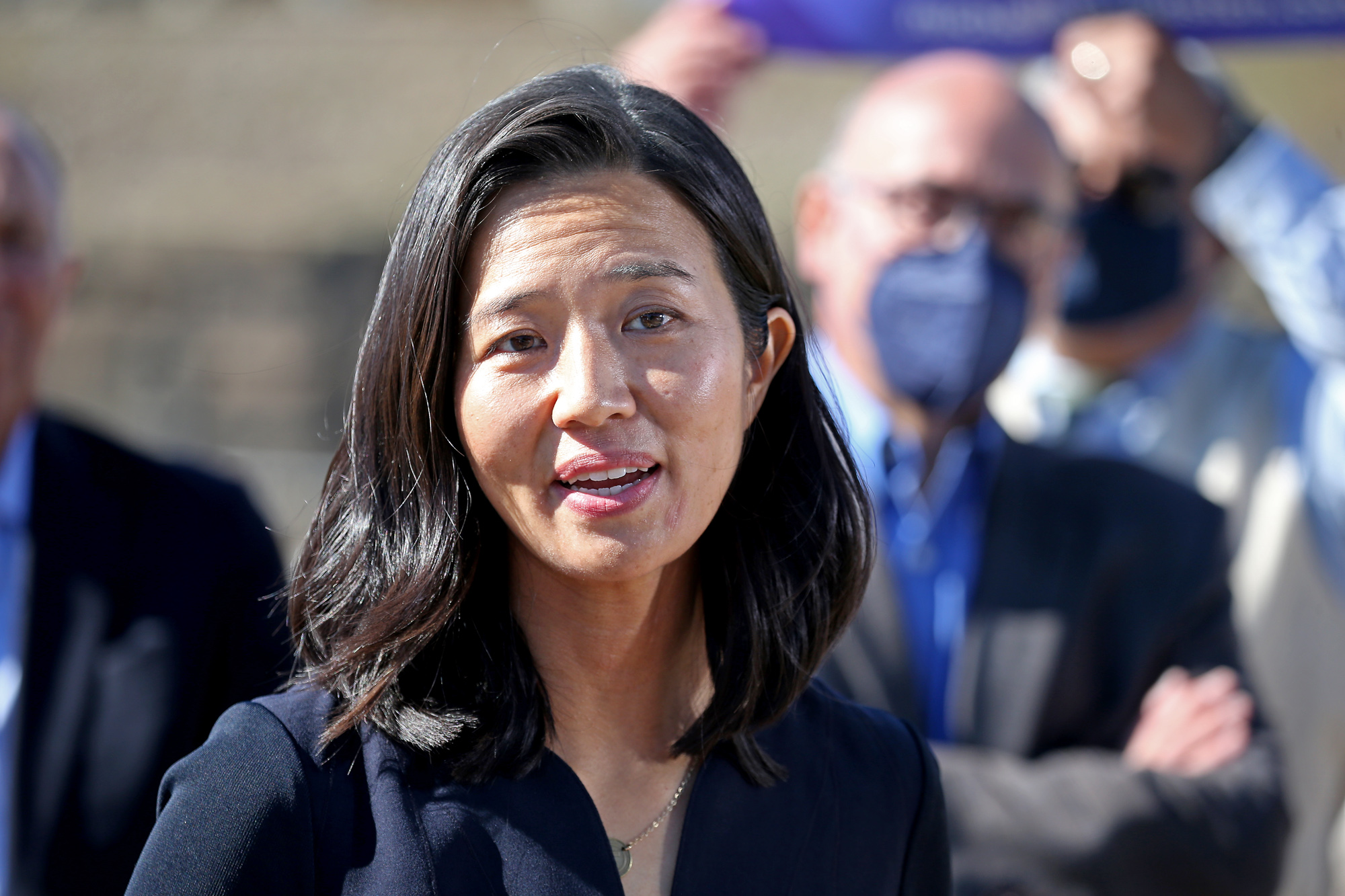
If Boston is sued by the federal government over its sanctuary policy — as Chicago and the state of New York have already been, and with top Trump administration officials threatening more action — would the city be able to defend itself in court? Two immigration law experts say yes, but it could still cost the city and harm its immigrant community.
Boston’s sanctuary policy is protected under the Bill of Rights, and a federal suit challenging it would likely fail, according to Laura Rotolo, a field director for the ACLU of Massachusetts, and Sarah Sherman-Stokes, the associate director of the Immigrants’ Rights & Human Trafficking Clinic at the Boston University School of Law. However, they say that legal action by the Trump administration could succeed as a scare tactic for Boston’s immigrant community.
WATCH ANYTIME FOR FREE
Stream NBC10 Boston news for free, 24/7, wherever you are. |
The threats against Boston are "just more bullying and intimidation, because the law really is clear that the federal government cannot force cities like Boston to do its work," Rotolo said.
Last month, White House border czar Tom Homan promised he'll be "bringing hell" to Boston and other sanctuary cities. Mayor Michelle Wu is set to testify about the policy before the House Oversight and Government Reform Committee on Wednesday.
Get updates on what's happening in Boston to your inbox. Sign up for our News Headlines newsletter.
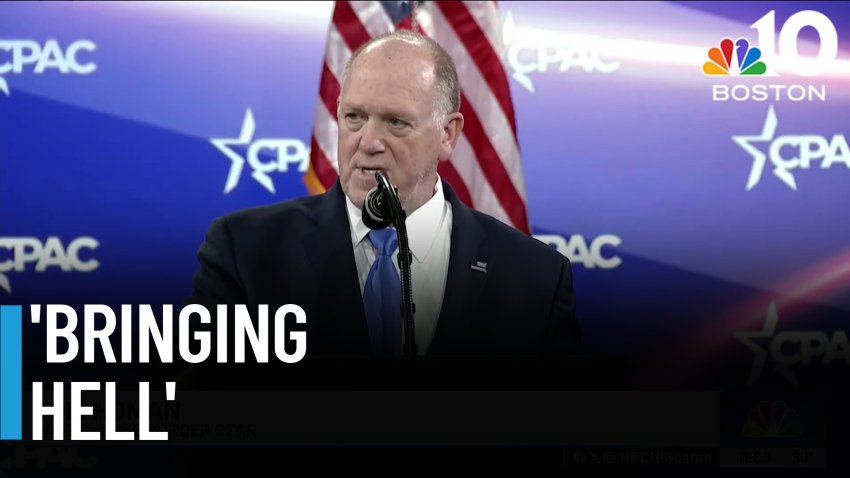
While there is not one official definition for a sanctuary city or state, the term is often applied to local laws limiting cooperation with federal immigration enforcement agents on deporting undocumented immigrants. The Trump administration has targeted policies under this umbrella nationwide.
The Department of Justice has sued Chicago and Illinois for such policies, as well as New York state, and ordered funding to be frozen for sanctuary jurisdictions, accusing local police of obstructing immigration enforcement.
Under the Boston Trust Act, city police collaborate with Immigration and Customs Enforcement, or ICE, agents only on matters of "significant public safety" and will not detain residents solely based on their immigration status.
The lack of collaboration can be a significant roadblock to the plans for mass deportation that President Donald Trump campaigned on. Rotolo told NBC10 Boston that ICE uses local police as "force multipliers."
"The way that they're able to deport people at the rate at which they would like to be deporting people is to rely on local law enforcement to hold them, and in Massachusetts, that's just simply not legal," she said.
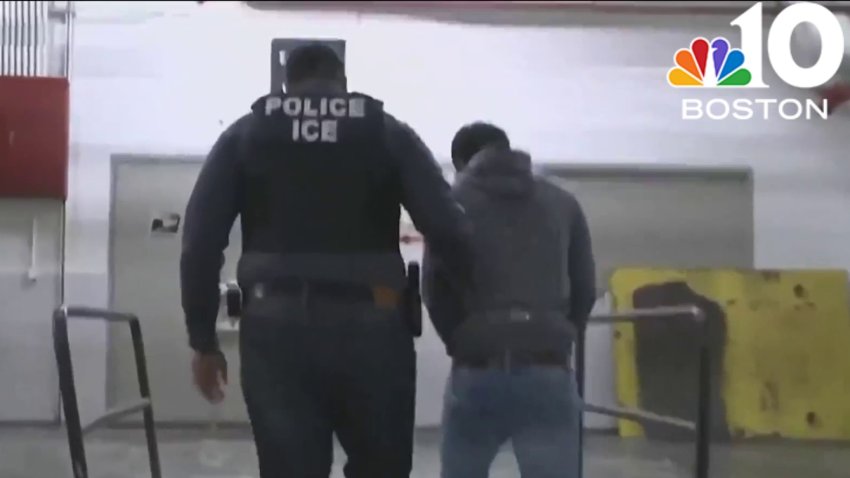
In the lawsuit filed against Chicago and Illinois, the Department of Justice wrote, "By refusing to honor civil detainers and warrants expressly authorized by Congress, Defendants have unlawfully eliminated these means for federal immigrations officials to carry out their statutory functions."
However, according to Rotolo and Sherman-Stokes, cities like Boston have the right to not volunteer their local law enforcement to support federal immigration enforcement. If the Trump administration sued Boston, then, they argue the courts would likely side with the city.
"The Tenth Amendment generally doesn't let the federal government tell states how to manage their own law enforcement officials. This is called the anti-commandeering principle, and it's pretty well established," law professor Sarah Sherman-Stokes explained.
"But the Trump administration sort of glosses over that," added Sherman-Stokes. Case law establishing the legality of sanctuary measures was omitted from the Department of Justice's memo ordering the funding freeze, for instance.
The Department of Justice did not respond to a request for comment about whether it would take legal action against Boston.
But when announcing the litigation against New York last month, Attorney General Pam Bondi warned, “If you don't comply with federal law, we will hold you accountable. We did it to Illinois. Strike one. Strike two is New York. And if you are a state not complying with federal law, you're next. Get ready.”
More Boston sanctuary legal news
The first Trump administration lost court battles over sanctuary policies.
Trump attempted to "use money as a way to intimidate and coerce localities to help its mass deportation plans," Rotolo said. But "it got tied up in the courts and eventually the Trump administration had to withdraw those threats."
In 2018, Trump sued California over its sanctuary policies, but federal judges eventually upheld the state’s law.
Now, if the Department of Justice do decide to levy a suit against Boston, Sherman-Stokes said, "there are plenty of lawyers in Boston that would be ready to stand up to the Trump administration."
However, she noted that a lawsuit could still do damage by stoking fear among Boston’s immigrant communities.
Trump’s attacks during his first and second terms were not "so carefully crafted as to be lawful. The point was to cause chaos and fear. And he was successful in doing that," Sherman-Stokes said.
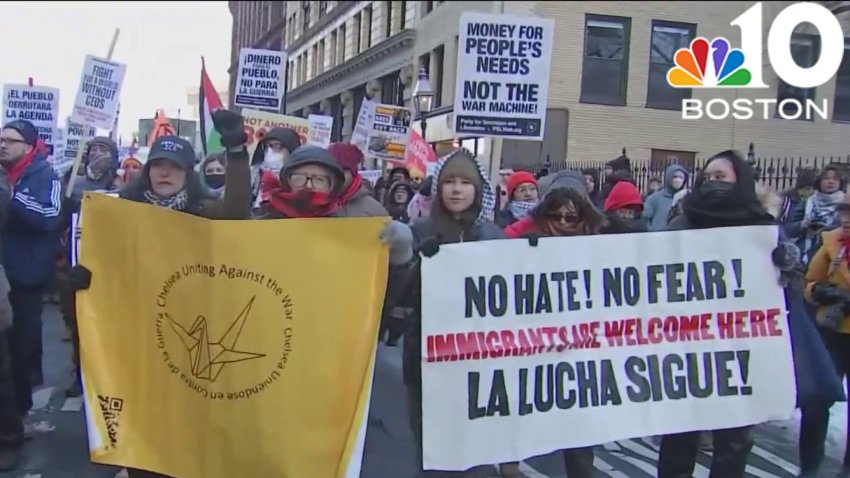
"It's hard to describe the level of chaos and fear and terror that non-citizen communities are facing. And I think that those will have long-lasting impacts on the well-being and mental health of immigrant communities," she added.
Immigrants can no longer do everyday activities like boarding the T or sending their kids to school without worrying that ICE will be there waiting for them, according to Sherman-Stokes.
The Trump administration’s anti-sanctuary push could also cost the city of Boston financially.
Fighting off the lawsuit could be costly. Additionally, the state of Massachusetts was awarded nearly $14 million in Department of Justice grants in fiscal year 2024, with over $200,000 going to the city of Boston — funding for law enforcement that the Trump administration has threatened to freeze. A bill introduced by House Republicans has pledged to stop all federal funding for sanctuary jurisdictions.
Furthermore, even if the city’s sanctuary provisions withstand Trump’s threats, the law does not fully protect immigrants in the city from deportation. Rotolo said that, with a signed warrant, ICE agents can enter spaces such as churches and schools. It would be illegal for Boston law enforcement to interfere in such cases.
The Trump administration has repeatedly referred to a federal statute that makes it a crime to harbor or conceal an undocumented immigrant, which potentially could put churches providing shelter at risk if they are seen as helping immigrants avoid arrest.
"The case law is a little unclear on what it means to harbor someone," said Sherman-Stokes. "If I were advising my local mosque or synagogue or church, I would say that they want to be careful or want to be mindful about what level of risk they're willing to undertake."
Sanctuary policies also do not prohibit ICE agents from "sitting in the lobby of a courthouse and waiting for a non-citizen to exit the courthouse and then arrest them," according to Sherman-Stokes.
Still, ICE agents often request that local law enforcement continue to hold individuals past when they would normally be released to allow federal agents time to take them into custody — and under Massachusetts law, sheriffs and police must refuse these detainer requests.
As Boston faces a potential lawsuit and other threats from the Trump administration, Rotolo emphasized that "we are already seeing a level of resistance" to Trump’s rhetoric about immigrant communities.
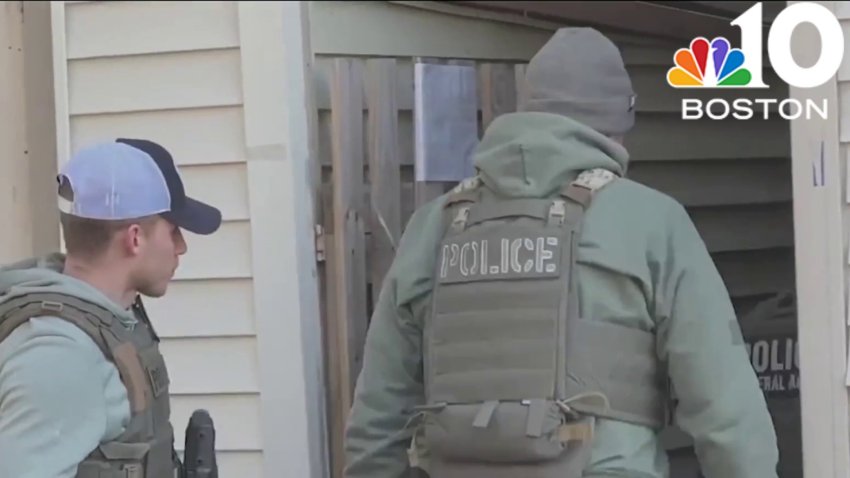
Somerville and Chelsea, two other sanctuary cities in Massachusetts, announced last week that they are suing the Trump administration over its attempt to cut funding for sanctuary communities.
In advance of her testimony Wednesday, Wu has been defending Boston’s sanctuary policy from the criticism levied by Homan and the Republican-led House Oversight Committee, emphasizing the city’s record-low crime levels and saying that Boston’s policies foster trust in local law enforcement and government.
"The Boston Trust Act is lawful. It's not asking local and state law enforcement to do anything that runs afoul of federal law. And I think we have to stand up for the rule of law now more than ever," Sherman-Stokes asserted.

